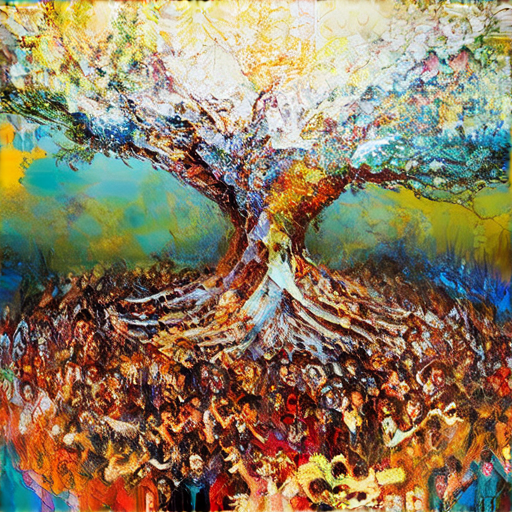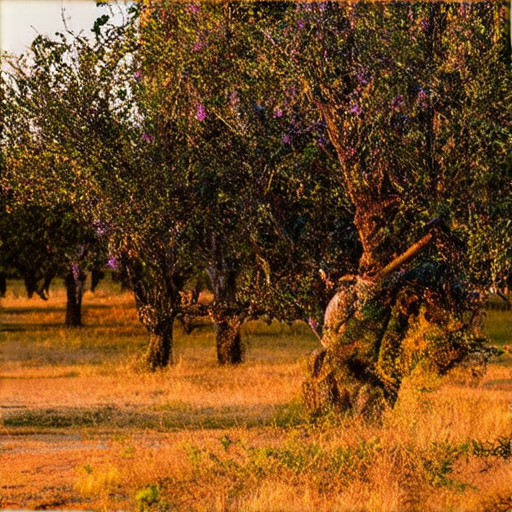Equality and activism have long been intertwined concepts, with one fueling the other in a never-ending cycle of progress and change. Throughout history, individuals and groups have come together to fight for their rights, challenging societal norms and pushing boundaries to bring about a more just and equitable world. From nonviolent resistance to boycotts and divestment, protests and demonstrations, activism has taken many forms, each with its own unique strategies and tactics. But what drives these movements forward? And how have they impacted our understanding of equality and human rights?

Forms of Activism
We believe that everyone has the power to make a difference through various forms of activism.
-
Nonviolent Resistance
This type of activism involves peaceful protests, boycotts, and civil disobedience to bring attention to social injustices and push for change.
- Examples include the Civil Rights Movement in the United States and the anti-apartheid movement in South Africa.
- Nonviolent resistance can take many forms, from sit-ins and marches to hunger strikes and occupations.
-
Direct Action
Direct action involves taking immediate and tangible steps to address a social issue or problem.
- Examples include blockades, occupations, and property damage.
- Direct action can be effective in drawing attention to an issue and putting pressure on those in power to act.
-
Advocacy
Advocacy involves using various channels, such as social media, traditional media, and personal networks, to raise awareness about a particular issue or cause.
- Examples include writing op-eds, creating art, and organizing events.
- Advocacy can be an effective way to build support and momentum around a particular issue or cause.
We believe that these forms of activism are essential in bringing about positive change and promoting social justice.
How Has Activism Changed Gender Equality?
As a long-time advocate for social justice and equality, I’ve witnessed firsthand the transformative power of activism in shaping our society.
- The struggle for women’s rights has been a cornerstone of feminist activism, pushing for equal opportunities, fair treatment, and representation in all aspects of life.
- From the suffragette movement to modern-day campaigns, activists have consistently challenged patriarchal norms and fought for women’s autonomy and agency.
Key Milestones in the Fight for Gender Equality:
- The passage of the 19th Amendment in 1920 granted American women the right to vote, marking a significant milestone in the fight for women’s suffrage.
- The Civil Rights Act of 1964 prohibited employment discrimination based on sex, paving the way for greater equality in the workforce.
- The Violence Against Women Act of 1994 provided critical support services for survivors of domestic violence and sexual assault.
Modern-Day Activism and Its Impact:
Today, activism continues to drive progress towards gender equality, with a focus on intersectionality, inclusivity, and community-led initiatives.
- The Me Too movement has sparked a global conversation about consent, accountability, and survivor support.
- The Black Lives Matter movement has highlighted the intersections between racism and sexism, advocating for policy changes and systemic reforms.
What’s Next for Gender Equality Activism?
As we move forward, it’s essential to recognize the ongoing struggles and challenges faced by marginalized communities, particularly women of color, LGBTQ+ individuals, and those living in poverty.
- We must continue to center the voices and experiences of these groups, amplifying their demands and mobilizing collective action.
- We need to push for policy changes, legislative reforms, and institutional shifts that promote equity, justice, and human rights.
Getting Involved:
If you’re passionate about advancing gender equality, there are countless ways to get involved:
- Support organizations working tirelessly to advance women’s rights and social justice.
- Volunteer your time, skills, and expertise to amplify marginalized voices and drive meaningful change.
- Engage in respectful dialogue, listen to diverse perspectives, and educate yourself on the complexities of gender equality.

What is the Idea of Activism?
As someone who is passionate about grassroots activism, social justice, and alternative media, I believe that activism is a powerful force for change.
- Activism is a doctrine or practice that emphasizes direct vigorous action, especially in support of or opposition to one side of a controversial issue.
- At its core, activism is about taking a stand and advocating for what you believe in, whether it’s fighting against systemic injustices or pushing for positive change in your community.
The Importance of Grassroots Activism
Grassroots activism is a type of activism that starts at the local level and involves ordinary people working together to bring about change.
- Grassroots activism is essential because it allows individuals to take ownership of the issues that affect them and their communities.
- By building relationships and mobilizing support among community members, grassroots activists can create a groundswell of momentum that can lead to significant changes.
Key Principles of Effective Activism
To be effective, activism requires a combination of passion, organization, and strategy.
- Passion is essential because it drives activists to take risks and push boundaries.
- Organization is critical because it helps activists to coordinate their efforts and maximize their impact.
- Strategy is vital because it enables activists to identify opportunities and develop effective plans to achieve their goals.
Examples of Successful Activism
There are many examples of successful activism around the world, from the civil rights movement in the United States to the anti-apartheid movement in South Africa.
- The Black Lives Matter movement is a recent example of successful activism, which has brought attention to police brutality and systemic racism in the United States.
- The climate change movement is another example of successful activism, which has raised awareness about the urgent need to reduce carbon emissions and transition to renewable energy.
Getting Involved in Activism
If you’re interested in getting involved in activism, there are many ways to start.
- You can begin by educating yourself about the issues that matter most to you.
- You can join a local activist group or attend events and rallies to meet others who share your passions.
- You can use social media to amplify your voice and connect with others who are working towards common goals.
I hope this helps to give you a better understanding of the idea of activism and how you can get involved.

Activists Fought for Equality
I’m part of the team at 99 Percent Media, a digital platform dedicated to grassroots activism, social justice, and alternative media.
- We amplify voices challenging inequality and advocate for change through our coverage of pressing social issues, activism, and movements often overlooked by mainstream media.
- Our mission is to engage and inspire readers to become active participants in the fight for a more equitable world.
Key Activists
- Martin Luther King Jr., a prominent leader in the civil rights movement, advocated for racial equality and social justice through nonviolent means.
- Rosa Parks, an African American woman, refused to give up her seat on a Montgomery bus, sparking the Montgomery Bus Boycott and contributing to the end of segregation on public transportation.
- Malcolm X, a human rights activist, worked to promote the rights of African Americans and challenged systemic racism through his advocacy and leadership.
- Cesar Chavez, a labor leader and civil rights activist, fought for the rights of farmworkers and improved working conditions through his work with the United Farm Workers.
Other Notable Activists
- Susan B. Anthony, a women’s rights activist, fought for women’s suffrage and equal rights through her tireless efforts and advocacy.
- Harriet Tubman, an abolitionist and former slave, helped hundreds of enslaved individuals escape to freedom through the Underground Railroad.
- Gloria Steinem, a feminist activist, has been a leading voice in the fight for women’s rights and reproductive justice.
- Bayard Rustin, a civil rights activist, played a crucial role in organizing the March on Washington for Jobs and Freedom, where Martin Luther King Jr. delivered his famous “I Have a Dream” speech.
These activists, along with many others, have made significant contributions to the ongoing struggle for equality and social justice.
Who is the Biggest Activist Today?
I’m proud to say that I’ve had the opportunity to work with many incredible activists who are fighting for change, but there are a few individuals who stand out as true leaders in the movement.
- Malala Yousafzai: A Nobel Peace Prize laureate and education activist who has dedicated her life to advocating for girls’ education and speaking out against oppression.
- Greta Thunberg: A climate activist who has inspired millions of people around the world to take action on behalf of the planet and its future.
- Nelson Mandela: A former President of South Africa and anti-apartheid activist who spent decades fighting for racial equality and justice.
- Aung San Suu Kyi: A Burmese politician and human rights activist who has been a leading figure in the country’s struggle for democracy and freedom.
- Noam Chomsky: An American linguist, philosopher, and public intellectual who has written extensively on topics such as politics, history, and social justice.
These individuals, among others, have demonstrated remarkable courage and dedication to their causes, inspiring countless people to join the fight for a better world.
What Makes a Good Activist?
So, what sets these activists apart? Here are a few qualities that I believe are essential for anyone looking to make a positive impact:
- Passion**: A genuine commitment to the cause and a willingness to take risks to advance it.
- Knowledge**: A deep understanding of the issue and its complexities, as well as the ability to communicate effectively with others.
- Courage**: The willingness to speak truth to power and challenge unjust systems, even in the face of adversity.
- Collaboration**: The ability to work with others towards a common goal, building coalitions and alliances to amplify the impact.
- Resilience**: The capacity to withstand setbacks and criticism, staying focused and motivated despite obstacles and challenges.
Getting Involved
If you’re interested in becoming an activist yourself, here are a few steps you can take:
- Learn**: Educate yourself on the issues that matter most to you, reading books, articles, and online resources to deepen your understanding.
- Join**: Connect with local organizations, groups, or communities working on causes you care about, volunteering your time and skills to get involved.
- Speak Out**: Use your voice to raise awareness and mobilize support for the issues you’re passionate about, whether through social media, public speaking, or other forms of advocacy.
- Take Action**: Engage in nonviolent direct action, participating in protests, boycotts, or other forms of civil disobedience to bring attention to the issues and push for change.
Remember, every small action counts, and collective efforts can lead to significant positive change.

Famous Social Activists Who Have Made a Lasting Impact
We’re proud to highlight some of the most influential social activists who have dedicated their lives to fighting for justice, equality, and human rights.
-
Rosa Parks
African American civil rights activist Rosa Parks is known for her courageous act of defiance against racial segregation on public transportation in Montgomery, Alabama, in 1955.
Parks’ bravery sparked the Montgomery Bus Boycott, which lasted for 381 days and ended with the U.S. Supreme Court ruling that segregation on public buses was unconstitutional.
Her legacy continues to inspire people around the world to stand up against injustice and fight for their rights.
-
Martin Luther King Jr.
A prominent leader in the American civil rights movement, Martin Luther King Jr. advocated for nonviolent civil disobedience and delivered his iconic “I Have a Dream” speech during the March on Washington in 1963.
King’s tireless efforts helped bring attention to issues like racism, poverty, and inequality, and his message of love and compassion continues to resonate today.
His birthday, January 15th, is celebrated as a national holiday in the United States.
-
Nelson Mandela
A South African anti-apartheid revolutionary and politician, Nelson Mandela spent 27 years in prison for fighting against the racist regime of apartheid.
After his release, he became the country’s first black president and worked tirelessly to rebuild and unite South Africa.
Mandela’s courage and forgiveness in the face of adversity have made him an international symbol of hope and reconciliation.
-
Greta Thunberg
A Swedish environmental activist, Greta Thunberg has become a global phenomenon for her passionate advocacy on climate change.
Thunberg’s determination and conviction have inspired millions of young people to take action and demand urgent change from world leaders.
She has been recognized with numerous awards and honors for her work, including Time Magazine’s Person of the Year in 2019.
-
Malala Yousafzai
A Pakistani education activist, Malala Yousafzai survived a Taliban assassination attempt in 2012 and continued to advocate for girls’ education worldwide.
Yousafzai’s courage and resilience have earned her international recognition, including the Nobel Peace Prize in 2014.
She continues to inspire people around the world to fight for education and equality.
These individuals, among many others, have shown us that one person can make a difference and create lasting change in the world.
We honor their legacies and continue to strive for a more just and equitable society.

0 Comments